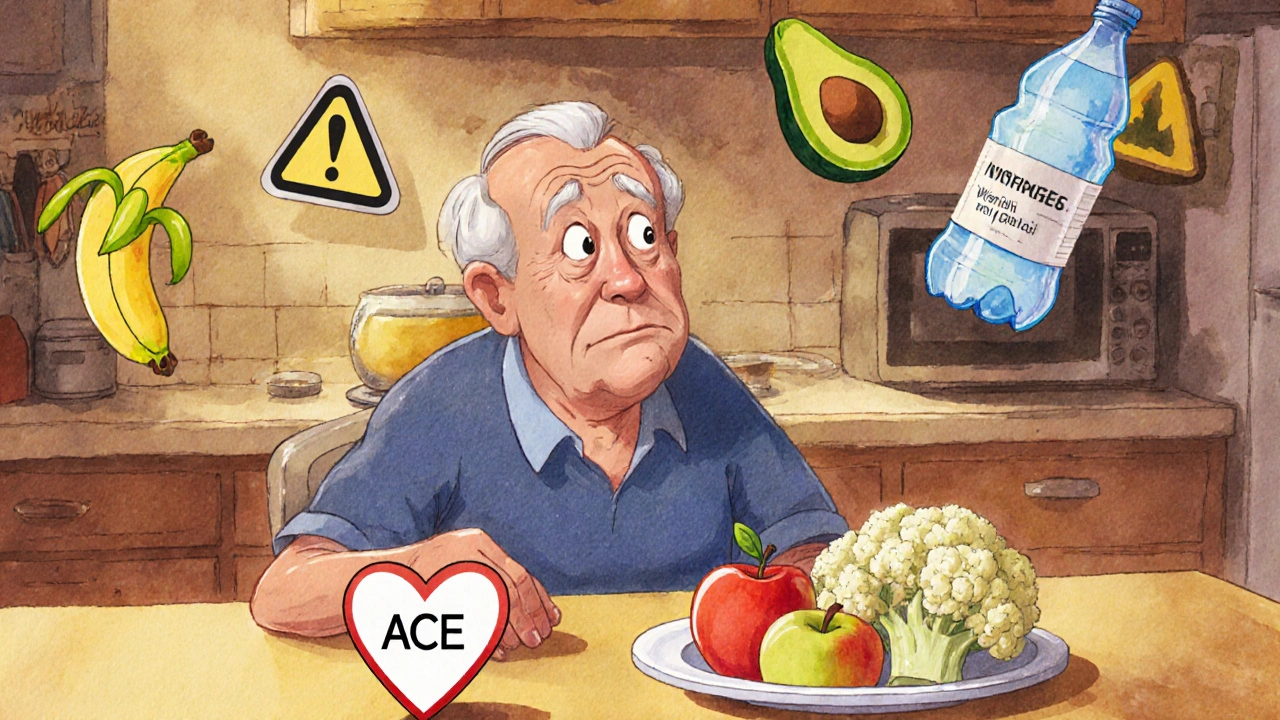ACE Inhibitors: How They Work, Side Effects, and What to Know Before Taking Them
When your doctor prescribes an ACE inhibitor, a class of drugs used to treat high blood pressure and heart failure by relaxing blood vessels and reducing strain on the heart. Also known as angiotensin-converting enzyme inhibitors, they’re one of the most common prescriptions for people with hypertension, diabetes, or kidney disease. Unlike some blood pressure meds that just push fluid out of the body, ACE inhibitors target the system that actually tightens your arteries—making them especially useful for long-term protection.
These drugs don’t just help with blood pressure. They’re often used in people with kidney disease, a condition where the kidneys can’t filter waste properly, often worsened by high blood pressure. That’s because ACE inhibitors reduce pressure inside the tiny filtering units of the kidney, slowing damage. But here’s the catch: if you’re also taking creatine, a popular supplement for muscle growth that raises creatinine levels, your blood tests might look worse than they are. Creatinine is used to measure kidney function—and ACE inhibitors can make that number climb, even if your kidneys are stable. That’s why doctors often adjust how they read your labs when you’re on both.
They’re also linked to other meds you might not expect. For example, if you’re on an anticholinergic, a drug that blocks nerve signals, often used for overactive bladder or Parkinson’s, the combo with ACE inhibitors can increase dizziness, low blood pressure, or even kidney stress. And if you’ve ever been told to avoid salt substitutes or potassium supplements? That’s because ACE inhibitors make your body hold onto potassium. Too much can be dangerous—especially if you’re already eating lots of bananas, spinach, or sweet potatoes.
One of the most common side effects? A dry, hacking cough. It’s not an allergy—it’s how the drug works. If it’s bad enough, your doctor might switch you to an ARB, like losartan, which does something similar but doesn’t trigger that cough. And if you’ve ever had swelling in your lips or throat after starting one? That’s angioedema—a rare but serious reaction that needs immediate care.
People with portal hypertension, high pressure in the liver’s blood vessels, often from cirrhosis, also get ACE inhibitors—not to treat the liver directly, but to reduce fluid buildup and lower the risk of bleeding. But even here, the dose has to be carefully tuned. Too much can drop blood pressure too low, especially when standing up.
And yes, there’s a financial side too. Many ACE inhibitors are available as generics, which is why they show up in discussions about FDA generic drug approvals, the process that lets cheaper versions of brand-name drugs hit the market. But even with low cost, they’re not always the right choice. If you’re taking other meds like NSAIDs (think ibuprofen or naproxen), your kidneys can get squeezed between two pressures—one from the painkiller, one from the ACE inhibitor. That’s why doctors check your kidney function before and after starting them.
What you’ll find below isn’t just a list of articles. It’s a practical guide to how ACE inhibitors fit into real-world health—whether you’re managing high blood pressure, protecting your kidneys, avoiding dangerous combos with other drugs, or trying to understand why your lab results look odd. Some posts dig into how they interact with creatine. Others show how they compare to drugs like Hyzaar or losartan. There’s even one on how they relate to dementia risk through anticholinergic burden. You won’t find fluff. Just what you need to know to talk to your doctor, spot red flags, and make smarter choices.

